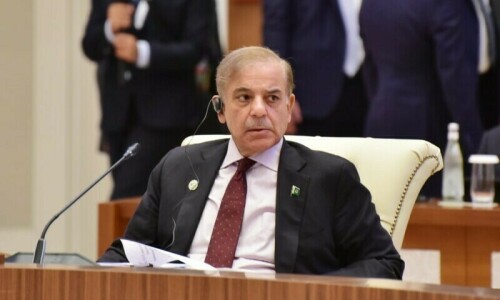LAHORE, Aug 2: Trade Development Authority of Pakistan Chief Executive Officer Syed Mohibullah Shah has said the trade policy should be for five years because one-year policy can never produce the desired results.
Addressing businessmen and industrialists at the Lahore Chamber of Commerce and Industry here on Saturday, he said the country needed export surplus to increase its export volume which could only be produced if there was continuity in the economic policies.
He stressed the need for increasing investment and use of new technology in development of indigenous resources for bridging the widening trade gap.
He said ignoring the indigenous resources and focusing attention on imported raw materials in the past was costing heavily to the nation. Eighty per cent of energy production was based on imported raw materials not to talk of other things, he added.
He said the TDAP would give special importance to Punjab and Lahore Chamber of Commerce and Industry in future as far as visits of trade delegations and exhibitions in foreign countries were concerned. The authority and the chamber should work hand in hand for economic prosperity of the country, he added.Chamber President Mohammad Ali Mian said concentration on a few items and markets was a source of instability in export earnings. This was evident from the export figures of the last year, which showed that the exports to traditional markets -- North America, European Union, and the Middle East --- had increased marginally in the first eight months of last financial year.
He said the TDAP, which was responsible for the implementation of trade policy, needed to be more proactive in searching new markets. He suggested Pakistan should also concentrate on exports destinations such as Japan, South Korea, Mexico, Brazil, African Countries and OIC. The Authority, he said, should focus on five regions, namely Africa, South America, Central America, Eastern Europe and Central Asian States to overcome its over-dependence on traditional markets. Africa was the biggest continent and could become a major market for Pakistani exports, he added. He said trade liberalisation also required to be expedited as it could lead to new investments and transfer of knowledge and technology essential for increasing productivity, high growth and low inflation. This was the new growth theory, which was placing more and more emphasis on variables like knowledge and innovation which could not be promoted in the absence of free trade, he held.













































Dear visitor, the comments section is undergoing an overhaul and will return soon.